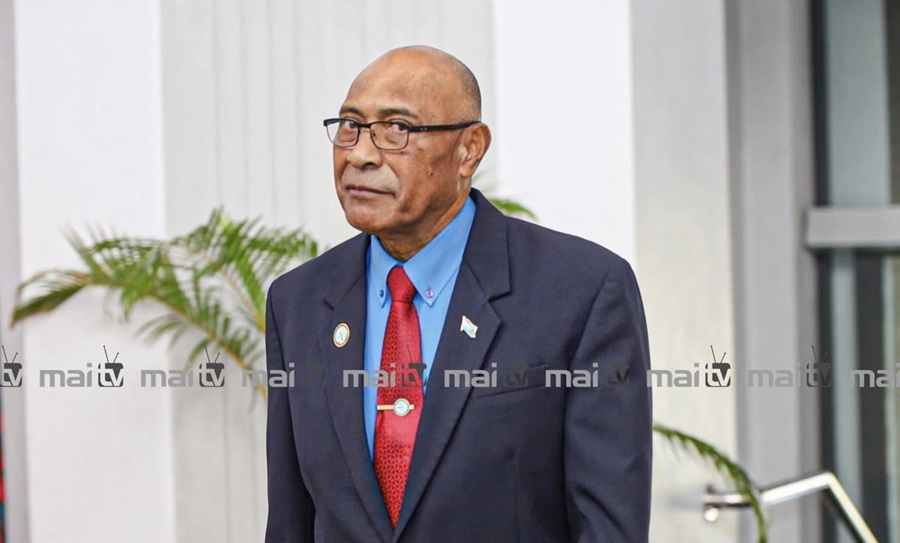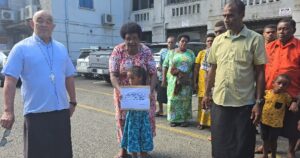Fiji’s Opposition MP and former military commander Viliame Naupoto cited perceived political bias, relevance to the country’s current political climate, and the need to clarify vague provisions in calling for an urgent review of Fiji’s 2013 Constitution.
Naupoto, a former member of the now-defunct FijiFirst party, whose existence and modus operandi were widely held to be supported by the 2013 Constitution—enacted during their time in government—expressed his views in a statement during the August parliamentary sitting last week. He also told Parliament that he held the same views “that this [2013] Constitution is attached or aligned to one political party” before contesting the 2022 elections under the FijiFirst banner.
“I am of the view that this Constitution does not have a unifying effect on the people of Fiji,” he stated. “There is a big divide, mostly along political lines, regarding the support or otherwise for this 2013 Constitution.
“This Constitution has been the subject of criticism and, sometimes, even ridicule in this House and outside of it. There has been a constant chorus of voices from individuals and organisations calling for a review of this Constitution.”
The former military commander highlighted several provisions of the Constitution that he believes warrant review, including section 131(2), which relates to the role of the military. He stated that the provision was too broad and placed significant reliance on military leadership’s discretion, which could lead to issues if not properly regulated.
He also highlighted sections 6(a) and (b), which assert that any attempt to establish a government outside the Constitution is unlawful and any actions to further such attempts are invalid. He described this section as an “anti-coup clause [and] worth retaining.”
Another provision he deemed needed reviewing is section 113(2), which determines the salaries and benefits for the Chief Justice and the President of the Court of Appeal. He argued that it undermined the separation of powers by allowing the President, on the advice of the Prime Minister, to set the remuneration for judicial officers, potentially compromising judicial independence.
Naupoto’s call for the review of the 2013 Constitution was reportedly supported by eight other opposition members, including Aliki Bia, Mosese Bulitavu, Josaia Niudamu, Alipate Tuicolo, Ioane Naivalurua, Taito Rokomatu, Penioni Ravunawa, and Naisa Tuinaceva, who make up the opposition’s Bloc 9 grouping.
Prime Minister Sitiveni Rabuka responded “in favour” of Naupoto’s call, acknowledging the need for constitutional reform. In his response, Rabuka highlighted the importance of having a constitution that reflects the diverse nature of Fiji’s society, voicing his commitment to the review process.
“It is particularly important in a multiethnic, multireligious, and multicultural nation like Fiji to have a constitution brought about by consensus, with consent and ownership from all constituent communities.”
He also underscored the challenges of amending the Constitution, citing the complex requirements for such changes.
“Some of them…are pretty impossible to achieve. We are talking about three-quarters of the membership of the House, which we know we have, and we can easily calculate that. We are talking about three-quarters of the registered voters, depending on what day and time we make the count. How many have died since we took the count and before they cast their votes? What figure will we be looking at? It is so, so difficult.
“I am hoping that before we get to that stage, we will have worked out a formula, or a more achievable formula, to be able to execute the tasks that we have given ourselves. I must congratulate the honorable Naupoto for bringing this up. We said that it was part of our manifesto. His party did not say they would do it, but he has said this morning to this honorable House that the responsibility for laying the foundations of governance in any country must come from the people themselves. It is not necessarily the duty of one political party to be defending a constitution, nor any other political party to try and amend it.”
The 2013 Constitution, Fiji’s fourth since independence in 1970 was enacted on 6 September 2013 after a process deemed controversial after the first draft compiled by a constitutional commission headed by a renowned international legal expert Professor Yash Ghai was discarded.









